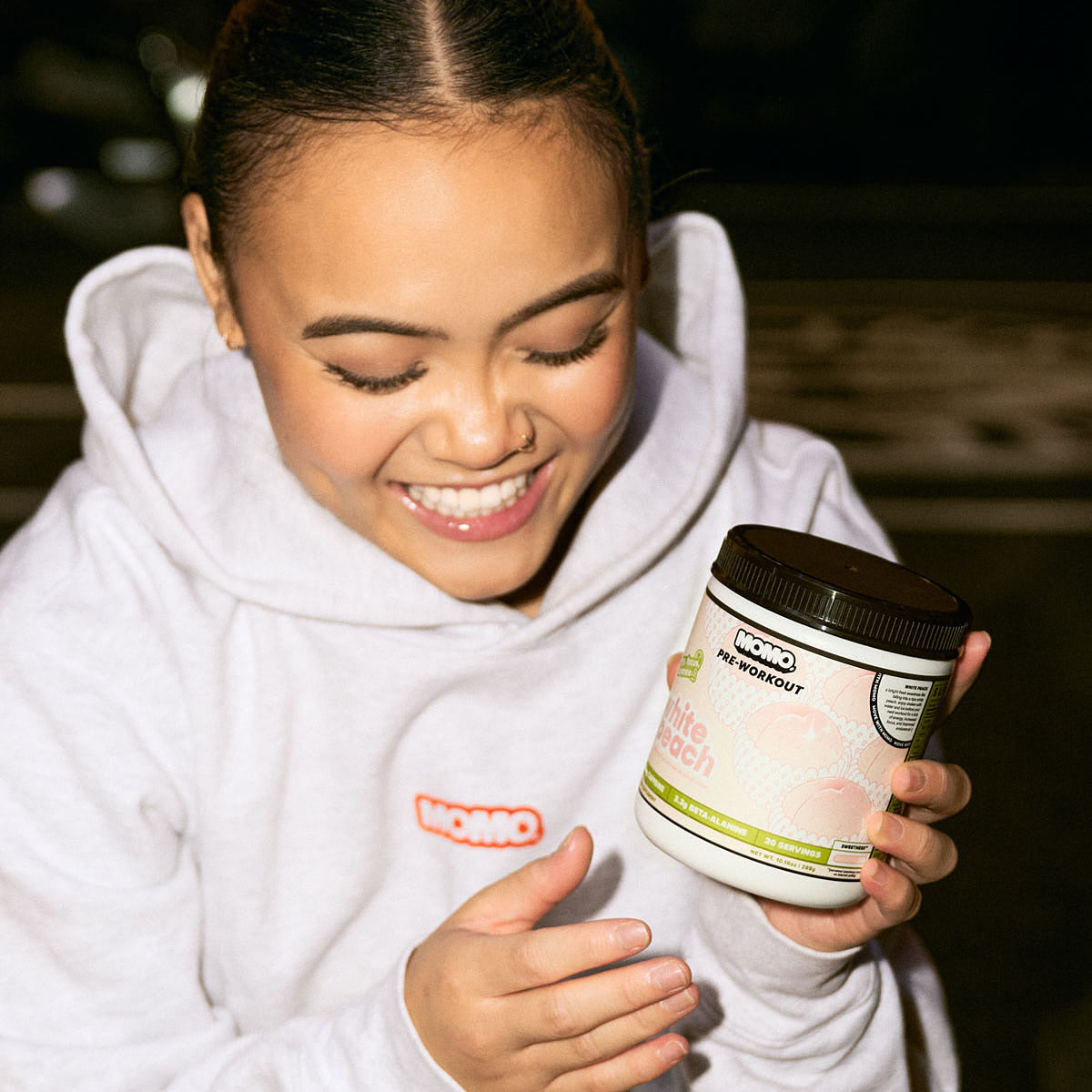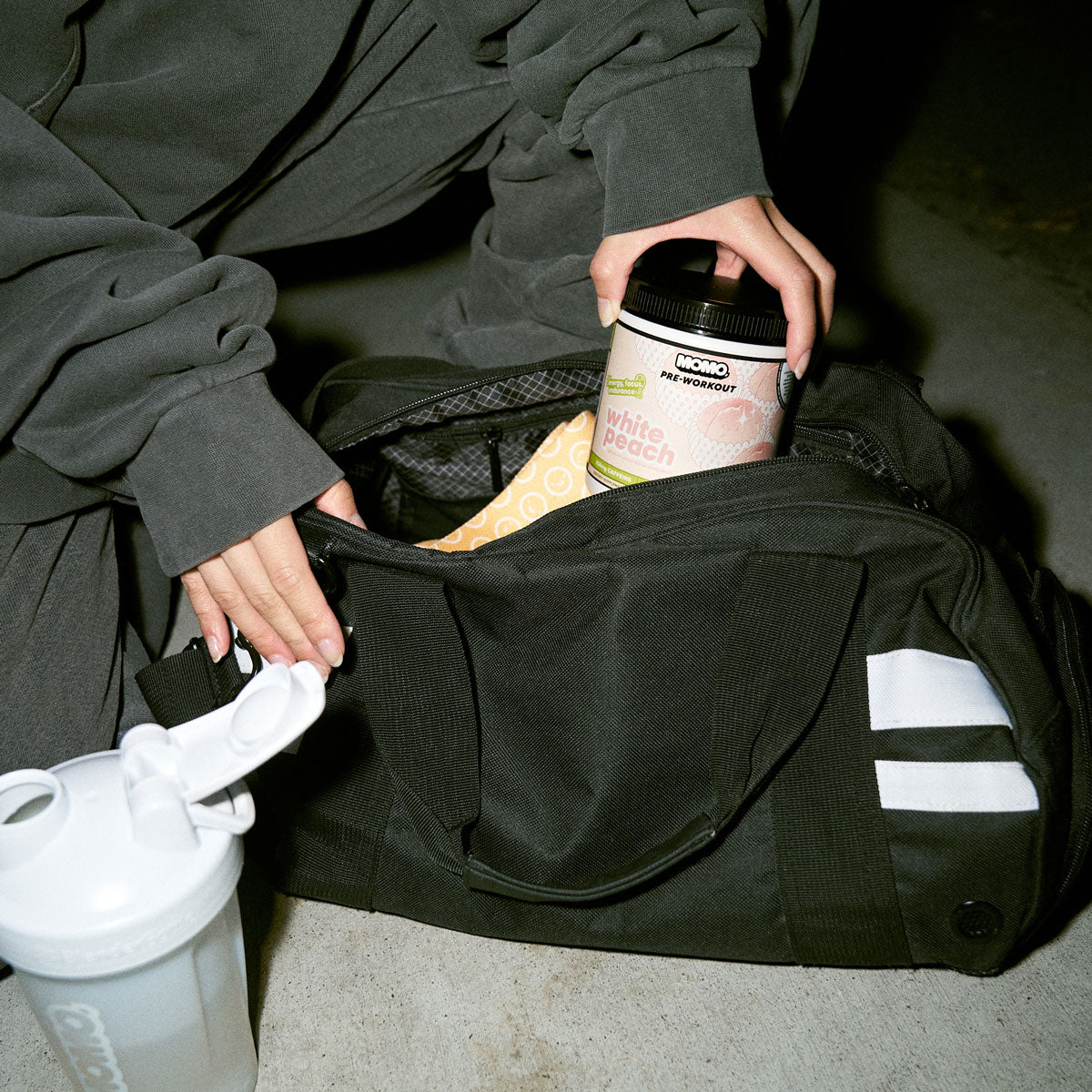6 minute read
Should I Take Pre-Workout?
You've probably seen people on social media dumping a scoop of nondescript white powder in their mouths, chasing it with water, and subsequently working out like absolutely nothing can stop them. What is this "pre-workout" anyway and should you be taking it too?
Pre-workout is typically mixed with water and should be taken about 10–20 minutes before working out. It's designed to give you a kick of energy, sharpened focus, and help you push harder during your workouts. It’s like an energy drink, but usually with extra ingredients added specifically to help you get better workouts.
They’re high in caffeine which takes around 8-12 hours to clear out of your system, so it’s better to take it earlier in the day than in the evening if you don’t want it to mess with your sleep.
who might benefit?
-
Early‑bird or after‑work lifters
If you typically hit the gym when you’re running low on energy or need that extra motivation early in the morning, pre-workout can help get you going. I will say, if you’re genuinely exhausted, maybe take an extra rest day or trade the long workouts for shorter more frequent ones so your body can focus on fully recouping from that stress.
-
High‑intensity athletes
If you’re chasing powerlifting PR’s, training high volume that needs extra endurance, or need high energy to get through your workout, you may benefit the most from pre-workouts with ingredients that extend energy and delay fatigue.
-
People on a cut
When you’re running on lower calories, your body doesn’t have extra fuel to draw from so workouts can feel like a slog to get through. Pre-workout can give you that extra energy to keep training quality high so you hold onto strength and muscle.
-
Focus‑challenged
If you have trouble staying on track during your workout, some pre-workouts that contain ingredients that support brain function, like ours, can help tighten your focus and keep you dialed in.
who can probably skip it?
-
Lowkey exercisers
If your choice of exercise is more lowkey, an easy-to-digest quick carb source paired with some protein can give you enough energy to get going. Protein slows digestion, so keep it light if you’re about to work out.- If you’re eating less than 30 minutes before training, prioritize carbs, maybe with a tiny bit of protein. Protein slows digestion, so you don’t want a heavy protein load too close to your workout. Try a banana, toast with honey, a rice krispie treat, fruit snacks, or something similar.
- If you’re eating 1+ hours before training try a balanced snack with carbs + protein is better for giving you more sustained energy like greek yogurt with fruit, a protein smoothie, chicken and rice, banana with peanut butter, or something similar.
-
Younger athletes under 18
- If you're under 18, pre-workouts aren't recommended. You're still growing through your teen years and your nervous and cardiovascular systems are more sensitive to stimulants like caffeine. High doses can increase the risk of heart issues, anxiety, sleep problems, and even impact healthy development.
- If you're a younger athlete looking to get the most out of your workouts, focus on dialing in your nutrition, sleep, hydration, and consistent training. These basics will fuel better performance than any supplement.
-
Caffeine‑sensitive or anxious lifters
Since pre-workouts are typically high in caffeine, we don’t need the extra stimulation. Too much caffeine can spike heart rate or jitters and make your anxiety feel worse. Try a non‑stim formula, a quick carb food, or stick to electrolytes. -
Anyone already caffeinated
If you work out later in the day, you may already have two coffees or an energy drink in your system. Adding another 200g of caffeine on top of that may have adverse effects like difficulty falling asleep or anxiety, so be mindful. -
People with high blood pressure, heart issues, anxiety
Stimulants can spike your heart rate, cause jitters, and worsen anxiety. Look for stimulant-free (“stim-free”) formulas or skip entirely. -
People taking certain meds (ADHD, antidepressants, beta-blockers)
Caffeine and other stimulants may interfere with or negatively amplify these medications. Clear it with your doctor or pharmacist before taking pre-workout, with or without caffeine. -
Budget‑minded
Pre-workout can be a bit spendy, but you have alternative options! You can make your own pre-workout mix or you could try quick digesting carbs listed above.
!!! If you’re pregnant, have heart issues, or take meds, chat with a healthcare professional before taking pre-workout.
how about somewhere in between?
We break up our formulation serving into two scoops to be more convenient for those days you want something more than a quick carb, but less than a full dose of pre-workout. I personally take one scoop most days because I still want that extra energy in the gym but also like having coffee in the morning.
tl;dr: Pre‑workout is absolutely not necessary to see results in the gym! It’s simply a tool to help give you more energy and focus in your workouts. If you’re checking all the big boxes - quality sleep, eating enough, training smart - but still feel drained, it’s worth looking deeper before reaching for a band-aid solution. Sometimes low energy can be an indicator of something bigger, like over-training or hormone imbalances. That said, if your basics are dialed in and you just need a tasty boost of energy, a good pre-workout can help you get more out of your workouts!
written by: ivy, co-founder of momo®




